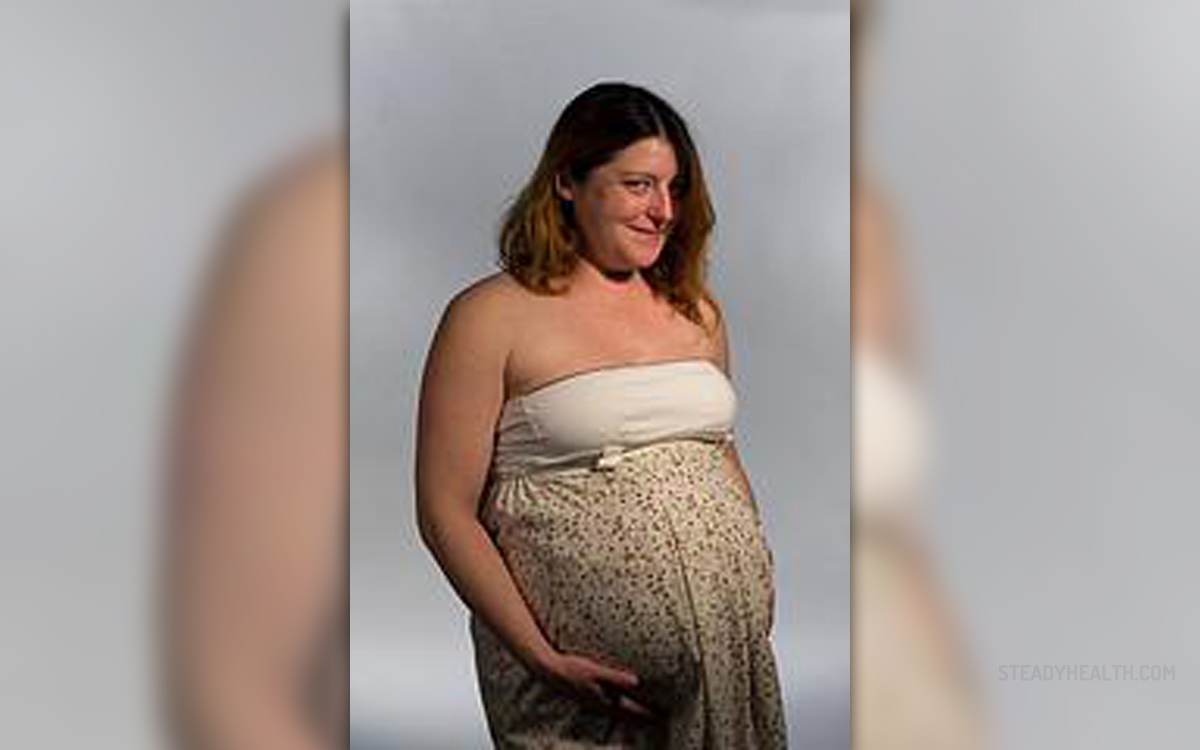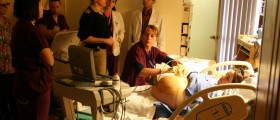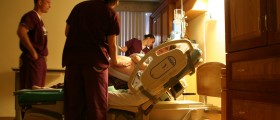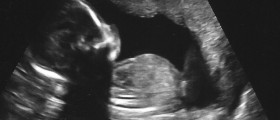
Down syndrome can be diagnosed after birth or during pregnancy. Many women discover that their baby is suffering from Down syndrome after abnormal sonogram (ultrasound) findings, or abnormal result of some of the tests such as maternal serum screening test, chorionic villus sampling (CVS) test or amniocentesis.
Ultrasound and maternal serum test are considered relevant screening tests for this genetic disorder, while amniocentesis and CVS are usually known as diagnostic tests.
Screening for Down Syndrome
Ultrasound or sonogram uses sound waves to generate a picture of the fetus. In some cases doctors can see subtle changes in the ultrasound pictures and suspect Down syndrome. Decrease in length of the femur (leg bone) and increase of the skin behind the neck (nuchal translucency) are some of these subtle signs that might indicate Down syndrome. Fetuses with cysts in the part of the brain which produces spinal fluid (choroid plexus) may also be suspected to have this syndrome. These ultrasound findings may but does not necessarily have to indicate Down syndrome, simply stating that there is increased risk that the unborn child has this genetic disorder. What you also need to known is that the fetus with Down syndrome does not have to show any abnormalities on the ultrasound, but can still have this disorder.
Heart defects and intestinal blockages are considered to be more serious signs of Down syndrome in fetuses. However, doctor cannot diagnose Down syndrome upon the ultrasound findings and he will need amniocentesis or CVS in order to confirm or rule out this diagnosis.
Maternal screening test is a blood test done on a pregnant woman. Doctors may refer to this test as “triple screen” test, since it is looking for 3 substances in a mom’s blood: alpha fetoprotein (AFP), human Chorionic gonadotropin (hCG) and unconjugated estriol. Fetus with Down syndrome usually has about 25% lower levels of AFP and unconjugated estriol, while the mom’s hCG is twice higher than normal hCG level. This test is commonly performed between 15th and 20th week of pregnancy and detects about 60% of all pregnancies affected by Down syndrome. Positive triple screening test means that you are at high risk to have a baby with this syndrome and negative that there is very low chance that your baby will have it.Down Syndrome Diagnostic Tests
Amniocentesis is usually performed on women over 35 years of age, whose screening tests showed high risk for Down syndrome. It is done in the period between the 15th and 20th week of pregnancy, obtaining some of the amniotic fluid surrounding the fetus and analyzing fetus’ skin cells present there. If there are extra number of 21 chromosome, the fetus has Down syndrome.
CVS is commonly done between 10th and 20th week of pregnancy, obtaining some cells from the placenta. Placenta contains fetus cells as well, so it is easy to perform chromosome analysis on them and discover whether the fetus has Down syndrome or not.

















Your thoughts on this
Loading...